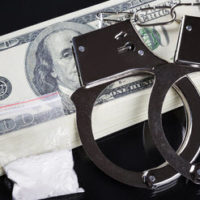How Does Maryland Criminal Law Address Marijuana?

Even though a growing number of U.S. states have legalized marijuana for recreational use, it remains a controlled substance under Maryland law. Accordingly, it is still a crime to possess or use marijuana in amounts of 10 grams or more in in Maryland, although exceptions exist for patients who use medical marijuana with a valid prescription.
Unlawful Possession of Marijuana
Maryland Code, Criminal Law Section 5-601 governs state law concerning the possession and administration of controlled substances, including marijuana. Under this section, it is typically unlawful to:
- Possess or administer marijuana, outside of medical exceptions; or
- Obtain or attempt to obtain marijuana through deceit, fraud, misrepresentation, or subterfuge.
Any person who possesses marijuana in violation of Section 5-601 faces a multifaceted punishment structure. If a person possesses less than 10 grams of marijuana, they can face the penalties below:
- First Violation — Qualifies as a civil offense with a maximum penalty of $100 in fines;
- Second Violation — Qualifies as a civil offense with a maximum penalty of $250 in fines; or
- Third or Subsequent Violation — Qualifies as a civil offense with a maximum penalty of $500 in fines.
For all other amounts of marijuana, unlawful possession is punishable as a misdemeanor criminal offense. Upon conviction, the maximum sentence includes six months in prison and $1,000 in criminal fines.
Exception for Medical Marijuana
Section 5-601 also establishes the Maryland state requirements for medical marijuana. First, medical marijuana is only available for patients with a “debilitating medical condition,” which include but are not limited to:
- Cachexia
- Chronic or severe pain;
- Wasting syndrome;
- Chronic muscle spasms;
- Seizures;
- Severe nausea; or
- Other medical conditions resistant to conventional treatment methods.
Second, medical marijuana is only available to patients who have a “bona fide relationship” with their doctor. To qualify as a bona fide doctor-patient relationship the doctor must be responsible for the patient’s examination, treatment, and care.
When a person with a debilitating medical condition is charged with unlawful possession of marijuana, they can claim an affirmative defense that:
- The patient has a bona fide relationship with the doctor;
- The doctor diagnosed the patient with a debilitating medical condition;
- The debilitating medical condition is chronic, severe, and resistant to traditional treatment methods; and
- Use of marijuana is likely to provide the patient with relief from their debilitating medical condition.
Assuming that the patient can demonstrate the factors above, they can escape prosecution for unlawful possession of marijuana. That being said, the medical marijuana affirmative defense is not available if the patient:
- Used marijuana in a public place; or
- Possessed more than 28 grams of marijuana.
Let Us Help You Today
If you need legal help with unlawful possession of marijuana or other criminal offenses under Maryland state law, it can be decidedly constructive to reach out to a knowledgeable criminal defense attorney. The Bel Air drug crimes attorneys at Schlaich & Thompson, Chartered have more than 60 years of combined legal experience in criminal and family law, including unlawful possession of marijuana and other drug crimes. If you need legal help, contact us today for an initial consultation.
https://www.stclaw.net/how-does-maryland-classify-illegal-drugs-into-schedules/























